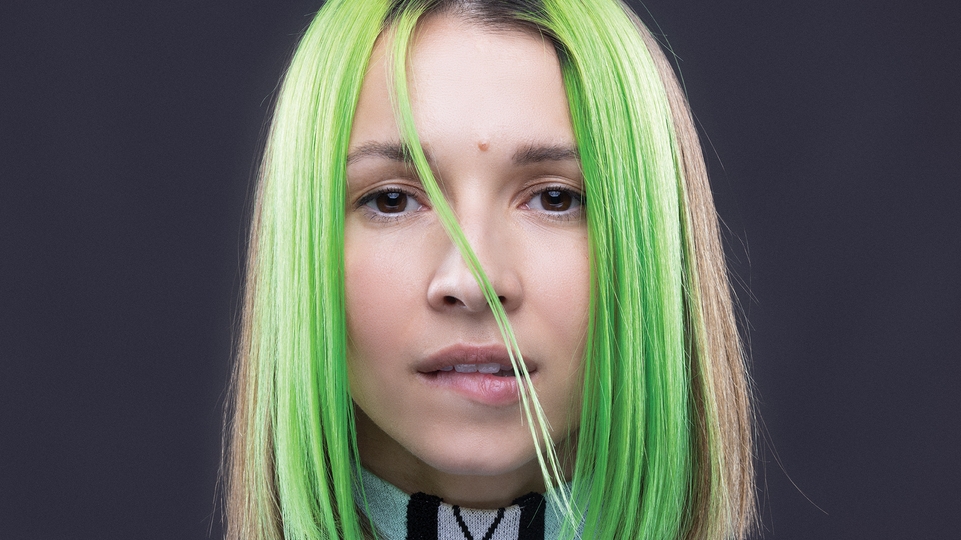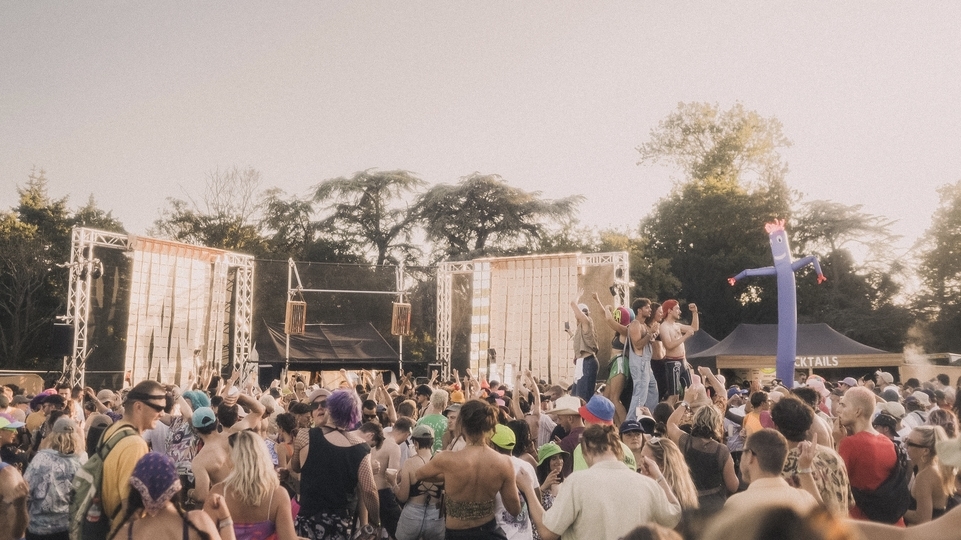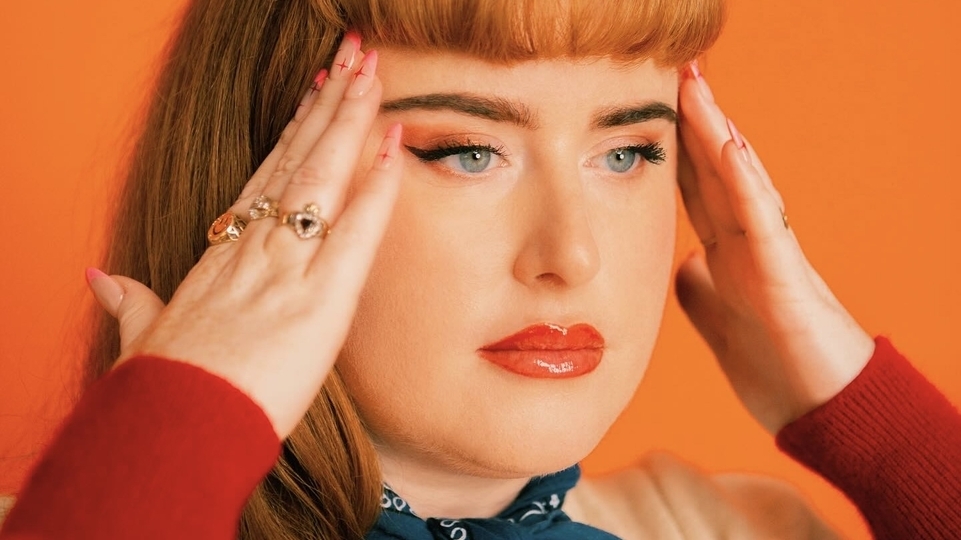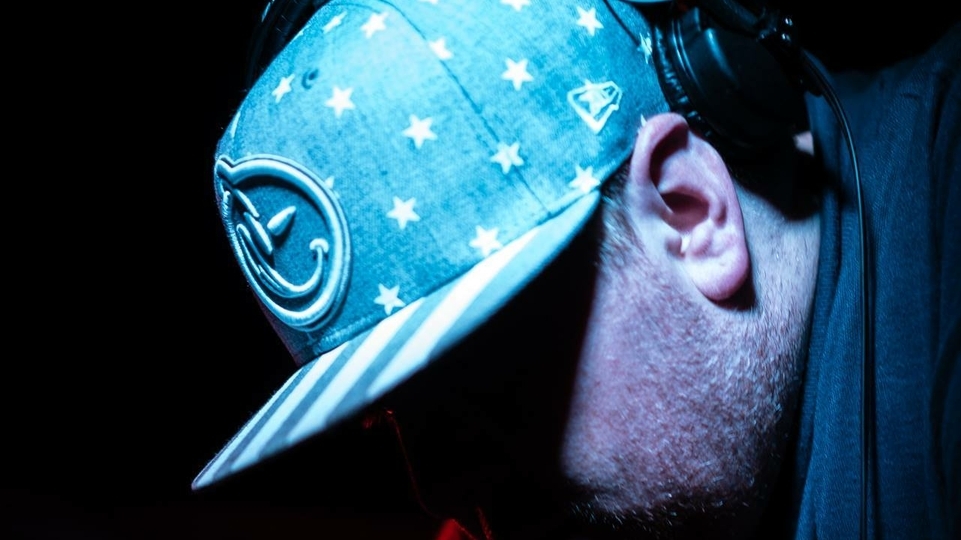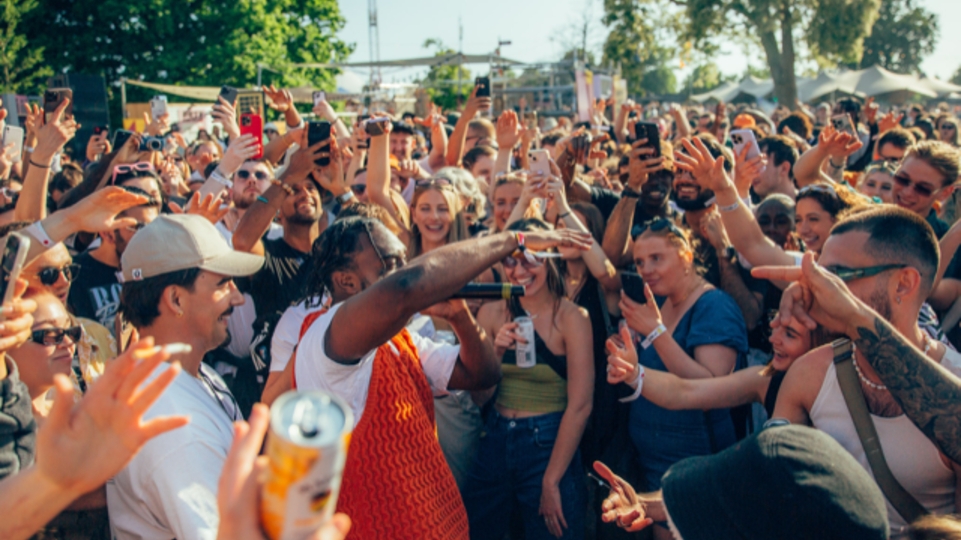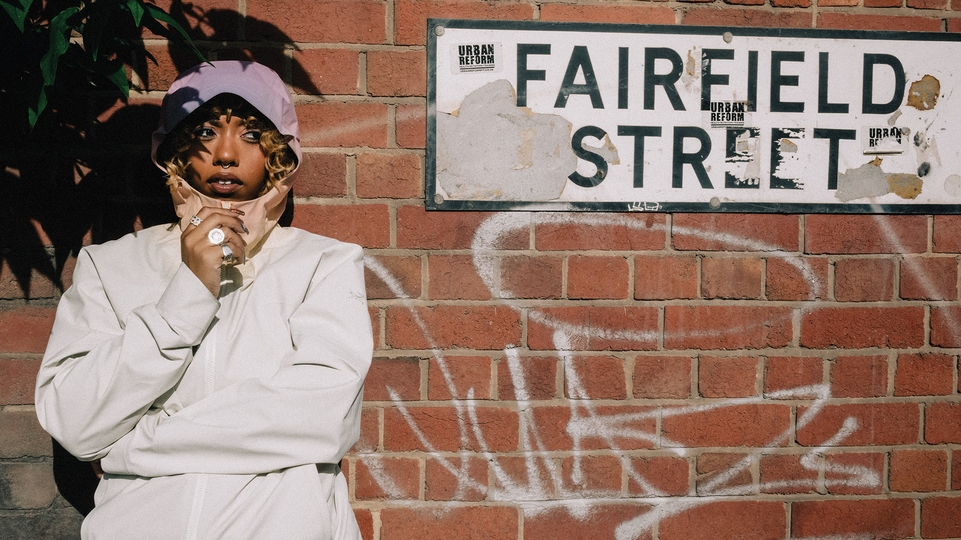Josey Rebelle: the quiet storm
Josey Rebelle is a reluctant cover star. The North London DJ's career has been a real slow burn, building a loyal UK fanbase through her Rinse FM radio show and small club residencies. But in recent years the international spotlight has shone brightly on her — and her BBC Radio 1 Essential Mix was voted the best of 2019 by listeners. DJ Mag meets Josey in Hackney to talk jungle, overcoming personal loss, and her devotion to her craft
In November 1994, London pirate station Kool FM celebrated its third birthday at the Astoria. The party caused havoc on Tottenham Court Road when thousands of ravers, including a young Josey Rebelle, failed to get into the party. “People were stopping to take pictures of the queue — all these kids just desperate to get into this fucking rave,” she remembers. “They started throwing bottles. Some boys managed to open the fire doors and rush in.”
Stuck outside, she heard the UK junglist vocal refrain of Firefox and 4-Tree’s ‘Warning’ through the walls and felt “so desperately unhappy. All these years later I’m still talking about it — and if someone mentions it, I’ll be like, ‘Oh, you got in, did you?’ I still have a massive grudge. I was so young and I’d just learned to mix. If you didn’t go to this rave you just didn’t exist — don’t even come to school on Monday.”
Josey Rebelle’s career in the club began long before she was allowed to step inside one. That sense of yearning, bound up in still-raw memories, will resonate with anyone who grew up obsessing over music — but Rebelle has never quite grown out of her fandom. Born in the North London neighbourhood of Tottenham, where she still lives today, Rebelle is regarded as one of the city’s most talented underground selectors, made known through her sets at the legendary Shoreditch basement club Plastic People and her long-running show on Rinse FM, where she plays an era-spanning and personal selection every Sunday night: a Black Atlantic fusion of soul, jazz, jungle and house.
In recent years, she’s become a DJ of international stature, adored by in-the-know crowds in the UK and abroad. At home in London, she represents the muddled magic of the city’s inheritance: Caribbean soundsystems, warehouse raves, the ever-mutating sounds of Carnival. As other London DJs lean into harder, rougher, “deconstructed” sounds from outernational orbits, Rebelle’s approach feels distinctly rooted, even familial. On her BBC Radio 1 Essential Mix — voted the best of 2019 by listeners — she invokes an underground history of black music: Jamal Moss’ visionary Afrofuturism and Moodymann’s slippery heat, alongside swirly-eyed ’92 rave from Dave Angel and Afrodeutsche paying tribute to techno’s raw mechanics.
“Plastic People was really important to me, because straight away I could see myself in it. I realised I could play it all”
But Rebelle is a reluctant cover star. Quickwitted, bookwormish and extremely private, she’s the antithesis of the spotlight-chasing DJ: most at home in the darkness of the club, lost in a private party inside her headphones. Her slow-burn success is a story of patience, dedication and occasional stagefright. But the kudos, the skills and the encyclopaedic knowledge she’s acquired along the way make her the most formidable kind of talent — and modest, too.
Rebelle is currently a resident at the Pickle Factory, an unassuming club in Hackney where her all-night-long sets often sell out. The venue is ideal for a fame-averse DJ who just wants to mix records in peace, head down with a focused expression. “Music is the thing, mixing is the thing, that's what gives me momentum,” she says, fizzing with enthusiasm.
She’s been DJing since she was 13-years-old. The only thing that’s different now is that “everyone is there for me,” she continues. “That used to shit me up a lot. I never used to think that anyone might come to a gig because it’s me, even if I’m a headliner. But when it’s all-night-long, I have to address the fact that they have come for me,” she laughs.
We meet Josey twice in December — once before the general election, when she arrives encased in an enormous puffa jacket printed with the cover art for Public Enemy’s classic album ‘Fear Of A Black Planet’, and once after the election, the sombre mood heightened by our choice of a dingy Dalston pub. On both occasions, we sit in dark corners, the gloom at her request. But she talks for hours, virtually without interruption, and laughs warmly as she makes herself the butt of her jokes. As a true introvert, Rebelle explains, she’s not shy — she just gets her energy from being alone. “I love being a bit invisible,” she says. “I’m like that about daylight too — like, why is the sun so bright? Is it necessary?”
She avoids mindless party mingling and you won’t find her posing on Instagram either — but she’s in her element on Twitter, quipping about her obsessions (music, stationery) and her enemies (jet lag, Tories, daylight). She’s most animated when talking about records. Her sentences run aground as she tries to find the words to explain just how much she loves what she does. This is what it comes down to with Rebelle — music isn’t so much a hobby or a career choice as an obsession, one that has carried her through good times and tragedies. Over the years she’s maintained a strict division between her job and her personal life, but as she tells her story, it feels like the unloading has been a long time coming.
TOTTENHAM
Rebelle grew up in Tottenham in the 1980s, an area that often felt like a pressure cooker of acrimony between the police and the black community. In 1985, just two weeks after the Brixton riots, the arrest of a Tottenham man and the death of his mother — of heart failure, after a police raid on her home — triggered the Broadwater Farm riots, which ended in the killing of a police officer.
Rebelle was a small child at the time, but she remembers her brother running into the house as nearby buildings went up in flames. The riots became a flashpoint in London’s cultural history, and left a deprived community further ostracised after the television cameras turned away. Thirty years later, tensions linger; in 2011, the police shooting of Mark Duggan sparked riots that spread across London.
“When I think about Tottenham as a place, there’s always been a really antagonistic relationship with police,” explains Rebelle. “That’s something that everyone in our family has — a distrust of authority, of politicians, of the police for things that they’ve done in the local area. Going into a house to arrest someone and the next minute they’re dead — like, how the fuck did that happen? I’ve definitely grown up in that environment.”
Flashpoints like the riots in Tottenham and Brixton forged a generation that was “political by default”, she points out. “That is as much a part of the history of dance music as the actual music. People created art off the back of those moments. The whole feeling contributed to the energy that ended up creating things like hardcore and jungle, and people like Linton Kwesi Johnson, who I love so much.”
On a more utopian tip, she cites Fabio and Grooverider’s long-running Rage night as an example of the era’s cultural melting pot, where the mingling of different communities and influences extended to the loose selection, where you might hear a soul record mixed into hard techno. That fluid eclecticism is fundamental to Rebelle’s own style: she still plays the tunes she loved back in the day and the 12-inches she first learned to mix on, an approach that exactly aligned with the ethos of Nonsense; a party at Plastic People, once home to nights like dubstep incubator FWD>> and residents like Theo Parrish and Floating Points. Plastic People was where she first built her reputation, turning up with a bag of records she’d wanted to play out for years.
“It wasn’t even about mixing, it was about hearing music. Someone could mix gospel into techno and it would make sense.” That’s what being a ‘selector’ is really about, she says. “Being around people like that at Plastic People was really important to me, because straight away I could see myself in it. I realised I could play it all.”
“Yes, music is beautiful, it makes you happy — but it’s also a serious business, and you approach those decks with serious intentions to destroy the dancefloor. That’s where I’ve come from”
REWIND
Music was the constant backdrop to Rebelle’s childhood. When she was eight, the whole family moved back to St. Lucia for two years, where her uncle had a soundsystem. Music was in the air, always, and especially country music. Back in London, her Caribbean neighbours would take it in turns to host blues parties, with the young ones dancing together in the bedroom. No matter how tiny the flat was, the speakers would boom until the early hours. Rebelle would watch the DJs spin Soul II Soul and Mantronix as MCs chatted over new releases. At smaller gatherings she’d take control of the tunes herself, awarding herself endless rewinds.
Entering her teens, Rebelle caught the hardcore bug, tuning into pirate radio every night and tailing her brother — already a competent DJ and playing on stations like Freek FM — on record shopping trips, where she’d collect rave flyers for her bedroom walls. She got her first taste of mixing, too, learning the ropes with LFO’s debut 12” and classic Forgemasters and R&S belters: “He had a pinboard that was covered in noise complaints from the council. When that bass kicked in, everything in the room would be shaking.”
Her first rave was an under-18s jungle night in Hackney; the DJs were “normal people from the estate” but seemed like gods. Going to raves felt like a natural progression from the blues dances and family shindigs she’d been taken to as a kid, but when jungle arrived it was a movement that belonged to her alone. “It was like carnival energy in every single rave. When you listen back to the tape packs all you can hear is the foghorns, the whistles, the call and response MCs — which is part of black culture.”
A local hotspot was Club UN, a military-themed club situated right across the road from Tottenham police station. “There was a camouflage tank parked outside permanently,” she laughs. “Every time I went to a night like One Nation or Telepathy I’d be the first person in the queue and I’d stay there ‘til the end.” The rave quest also took her south of the river, to Peckham’s Lazerdrome, and even as far as Milton Keynes for nights at the Sanctuary.
It was around that time that the notorious Kool FM party threatened to ruin her life — and it wasn’t her only early taste of dancefloor disappointment. After another failed night out, the teenage Josey penned a five-page letter of complaint to the pirate station. “I remember writing, ‘I’m a schoolgirl, I have to spend this much on a ticket, this much on travel, and when I get into the rave I don’t even have any money for a drink — so when I can’t get in it's really devastating’.” The next day at school, her friends asked if she’d been listening to the radio. “And I hadn’t! MC Five-O had read out the entire letter — and that was the one time I hadn't listened!
“But the thing is,” she says, “that letter was written out of love — I was absolutely, deeply in love with jungle music. I don’t even play jungle out that much now because it means so much to me. It really reflected where I’d come from — my family, my parents who had come over as part of that Windrush generation. Not just black kids, but loads of kids on estates building soundsystems together, raving together. The attitude of that era was that this is serious shit. This is not a joke. Yes, music is beautiful, it makes you happy — but it's also a serious business, and you approach those decks with serious intentions to destroy the dancefloor. That’s where I’ve come from.”
LIFE LESSONS
Rebelle studied sociology at the London School of Economics, a prestigious institution not exactly famous for anti-establishment politics. She turned up to her interview convinced she wouldn’t get in, despite having the grades. “I said, ‘Yeah, I like it here, but I haven’t seen anyone like me’, which probably wasn’t even true. That was a Tottenham thing to me — I wasn’t rude, I just felt like I wasn’t going to get in, so the best thing I could do was be myself.”
At that interview, Rebelle pulled out a 10,000 word essay she’d written, in calligraphy hand, about – what else? – acid house. She played her first gig at the LSE student club. The security guards had to pull her off the decks by the end of the night — the first of many times that happened, she laughs. Gig offers trickled in and Rebelle picked up a regular slot at a hip-hop night, but the perfectionist streak that made her a strong student got in the way, triggering a “freakout” that made her step back from DJing just as she was getting started. “I hadn't learned the life lesson that you need to be shit at something and risk making a fool of yourself in order to get good,” she reflects. “I felt like giving up and selling all my records.”
Rebelle’s sensible side took over. First there was a graduate job at Sony Music. “Loads of people swanning around, dressed up to the nines, not doing any work,” she says. “People smoking weed in their offices, blasting music. I remember watching someone receive a box of Destiny’s Child postcards and forging their signatures on all of them.”
Later came a law conversion course, abandoned when she realised that court cases bored her to tears. A more appropriate hiring saw her working with Lemon D and Dillinja at Valve Recordings, organising releases and travelling around the country with the drum & bass label’s custom soundsystem. “Dillinja got tired of playing his music out and not even hearing the bass, so he built his own system,” she beams. “You don’t do that shit for fame — that is love.”
One outing to Fabric showed just how seriously they took their craft. After finishing set-up with just minutes to spare, they watched as the industrial-strength bass laid waste to the building: “The bar staff couldn’t do their jobs because the glasses were dropping off the shelves!”
Running a label at the peak of its powers was hard graft; after a long day, Rebelle would often sleep in their studio in Charlton. As well as organising releases — records like ‘Big Bad Bass’ and ‘The Killa-Hertz’, early ’00s albums from the Valve bosses — it was Rebelle’s responsibility to get the freshest dubplates to DJs before the weekend. “DJ Hype would text Dillinja on a Saturday saying, ‘Fucking hell, I played this tune and got eight rewinds!’ That’s how you knew a tune was gonna be big. They’d be selling 20,000 on vinyl through word of mouth.”
After nearly three years at Valve, Rebelle got back on the corporate ladder, working for TV production companies and advertising agencies. Though she’d kept her DJing quiet when she worked at Valve, the obsession was creeping back in. Thankfully, she hadn’t thrown out her records. In 2011, she played the first of hundreds of sets at Plastic People, joining the crew at Nonsense and making friends with some crucial characters: MC Judah, one of the kids who broke down the fire doors at that Kool FM party (and MC’d at her early Pickle Factory sessions), and someone called Rat, who later brought Rebelle into Rinse FM.
Aligned with Nonsense’s anything-goes music policy, she explored every corner of her collection, dropping baby-making soul alongside rabid Detroit techno, brainscrambling jungle and rough-edged Chicago jackers. Plastic People was the space where Rebelle honed her intuitive style, prioritising selection over flashy tricks; she has a knack for choosing the right tune at the right time. The venue was a hotspot for innovative, genrespecific nights as well as more freeform parties like Nonsense. Everyone who worked there was a “true music head”, says Rebelle. “The first time I met [club owner] Ade, the first thing he said was, ‘Can I go through your record bag?’” The gloomy intimacy of the basement venue was ideal, too: “The sound was incredible and it was dark — it felt like I was cocooned in.”
HUNGRY
Rebelle soon landed residencies at two other Plastic People nights, Gullyver and Deck Queens. “As if that wasn’t enough, I used to ring up begging for any more warm-up slots,” she laughs; Theo Parrish once interviewed her over the phone before letting her open for him, on the promise she’d only play vinyl. In 2010, Rebelle also appeared on several of the very first Boiler Room broadcasts — not a natural habitat for a camera-shy introvert. “You didn’t even think of the cameras being there [at the early Boiler Room sets]. Femi from NTS Radio phoned me and said, ‘Do you wanna come down and play some records? There’s some rum here.’ Yeah, sick. There were probably 10 people in the room.”
In 2011 Rebelle was offered a show on Rinse FM, not long after the pirate station had got its official licence. There was just one catch: the slot was at 3am. “It just sounded so bonkers,” she giggles. “It was a very romantic idea to me, thinking back to Sunday nights listening to Kool FM when I should have been getting ready for school.”
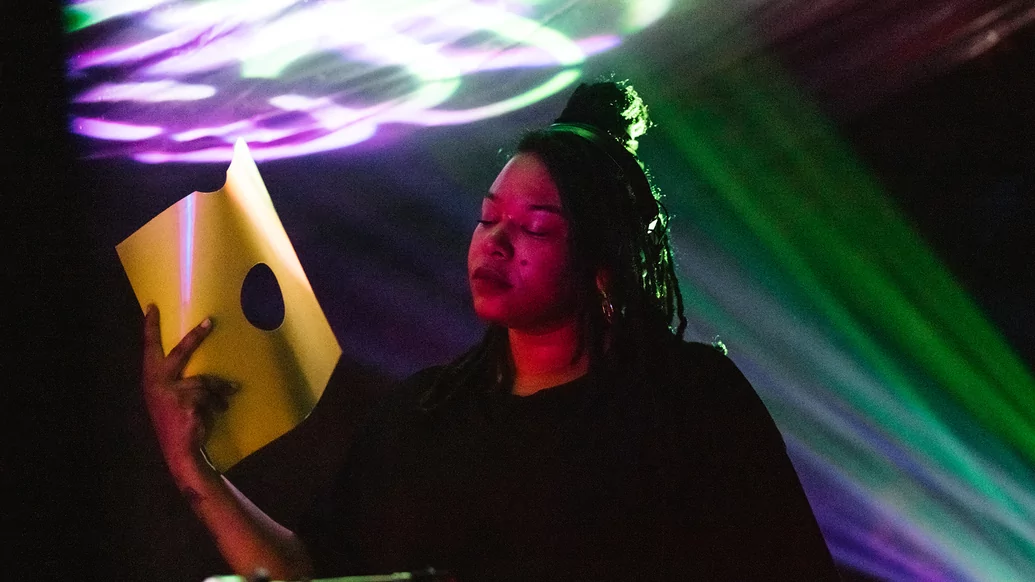
“I’ve experienced it enough times to know that [music] has saved me. When my sister died, I cancelled a lot of gigs but kept going to Rinse. Just being able to go there and play music was the
thing that kept me sane”
The near-mythical legacy of Rinse was a lot to live up to, but it made her feel at home, seeing “working class kids doing whatever they need to do to get this music out.” Leading up to the Rinse offer, she’d been an occasional guest on Alexander Nut’s show, where her taste chimed with the Eglo Records boss’ soulful, hip-hop leaning selections. He’s a long-term admirer of her “slow and steady progression”. “When I started working with her, she always took that extra bit of convincing — she had a humble opinion of herself,” he says over the phone. “You can become a bit sceptical of the music industry and the way the club scene works, so to see somebody like that winning — someone really talented, skilled and knowledgeable — it’s really reassuring and heartwarming.”
A year into juggling the graveyard slot with a full-time job and weekend DJ sets, her mum administered a reality check. Rebelle’s older sister had passed away and the whole family had gathered in the same house. “I was sharing a room with my mum and I got up at two in the morning and got my records together,” she remembers, “and my mum sat up in bed and said, ‘Do you do this every week Josey?’ All of a sudden, her asking me that question made me realise how absolutely ludicrous it was. I wake up at two in the morning, go into a radio show and creep home with the rats and the bin men — then I go to work?”
It was time for a new slot. In 2012, she moved to Sunday mornings, soon becoming one of the station’s best-loved hosts as she showed off the softer, sexier side of her record collection, playing Donald Byrd’s visionary jazz or turning up the heat with Sade and Leroy Burgess. “Pregnancy selections!” she laughs. “That slot was very successful for me. I would have to bring a notebook every week and I’d be writing down three pages of shouts.”
Rebelle only quit her day job two years ago; she would still be working now if her dad hadn’t become ill. He was in hospital for several months before he died. Rebelle was often at his bedside until closing hours, before heading off to a gig. “The whole time I was DJing I would think that my phone was about to ring with the hospital saying something bad. I used to think I could feel my phone vibrating when it wasn’t.” Only a year later, her mum passed away unexpectedly in an accident. The shock and pain nearly overwhelmed her.
“I tried to go to work after [she died], but my brain was like, ‘You need to get out of here, you can’t do this’. I was so fragile.” For such a private person, being on show every weekend, tasked with providing other people with a good time, wasn’t easy; she remembers being scared to talk to anyone before a set in case she started crying. But as soon as she started mixing, she had something to grasp onto: “I could feel the energy of the music working through me,” she says. It was music that carried her through her grief.
“I’ve experienced it enough times to know that it has saved me. When my sister died, I cancelled a lot of gigs but kept going to Rinse. Just being able to go there and play music was the thing that kept me sane.” She leaned into the tougher parts of her record collection then, blotting the pain by going hard, fast and loud.
Writing has also functioned as a channel for her grief. She’s currently studying for a Masters degree in Creative Writing at Birkbeck. “The last couple of years have been just trying to keep my energy there so I’m not going under,” she says. “I’ve got a million unread texts and emails on my phone because I haven’t been able to do much more than DJing and writing. They are ideal pursuits for me. I like travelling, I like being alone a lot of the time. It’s the perfect place for me to be able to grieve.”
GRADUATION
It’s in these last couple of years that Rebelle has graduated from local treasure to something like an international star — though reluctantly. Her sets at Dimensions Festival in Croatia and at Sustain-Release, the insider techno festival run by Aurora Halal in upstate New York, won her a legion of new fans. Travelling to America also led Rebelle on a pilgrimage to Detroit, where she saw Theo Parrish play on his own turf and found herself among her heroes: “Marcellus Pittman dancing over there, Moodymann over there, Patrice Scott — all these artists I look up to so much. It was like, I’m doing the right thing, this is where I belong.”
Kristin Malossi, who performs as DJ Voices and is also a booker at Queens venue Nowadays, explains that Rebelle’s “unforgettable closing set” at Sustain-Release made a huge impact on New York’s techno community. “She’s incredibly good at what she does, and she also doesn’t give a fuck,” says Malossi. “Not in a dismissive way, but she truly doesn’t care about trends, hype, or keeping up with anyone’s expectations but her own. What she does care about, deeply and obviously, is the music, and playing that music with integrity. That’s always been the strongest projection I’ve felt from her, and I think that vibe is contagious and compelling.”
This year Rebelle will begin a residency at Astin, the second room in Barcelona’s Nitsa club, while continuing her reign at the Pickle Factory. She’s putting together a Beats In Space compilation, following in the footsteps of Powder’s release on Tim Sweeney’s label last year. Her spin on the concept will include older tracks that have never seen a digital release, as well as her own liner notes. This summer, she’ll also make her debut appearance at Amsterdam’s Dekmantel festival, playing on the impressive main stage.
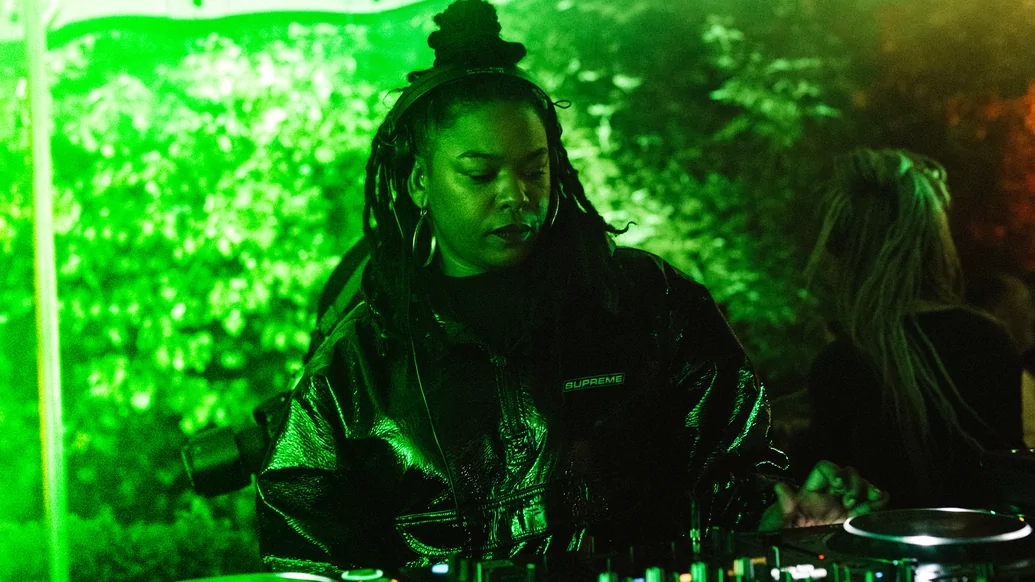

Apart from all that, she claims to have no particular plans for her career. “Other DJs are more ambitious,” she says. “I just want to keep going. The slow burn has absolutely been my choice. I have an agent but I don’t have management, I don’t have PR, I don’t have Instagram. All of these are my decisions.”
Some of Rebelle’s decisions are more perplexing. It’s hard not to wonder, perhaps, why someone so fanatical about music wouldn’t try to make tracks of her own? It’s a question she thinks about all the time. “There’s definitely been an urge,” she admits; she sometimes makes her own edits and plays them out without telling anyone. The real reason we’ve not heard Rebelle’s debut 12-inch is that she holds herself to the same extreme standards set by her heroes; technical wizards like Dillinja.
“There’s always been a thing in me that’s like, 'Are you going to be able to achieve that — and if not, why bother?' I don’t think that’s a good thing. I think that can stop a lot of people from progressing. But to me, the worst thing I could do now, after working so hard to get to the place where I am, would be to make some dry, boring, middle-of-the-road tune,” she says, cringing.
As our conversation wraps up, talk turns to the photo shoot and the looming prospect of being on a magazine cover. Rebelle has never wanted to be famous. “With my upbringing and the generation I grew up in, the worst thing you can do is be a show-off. You don’t want to be seen as thinking you’re too nice,” she says.
But as a black woman who has become one of the UK’s most respected DJs, and through her endless championing of London’s soundsystem history, Rebelle has become an inspirational figure for a new generation. Young black women often line the front row of her shows — particularly when she plays the harder stuff, she notes with pride. “I think having someone like me on the cover is an important thing — and that overrides my fear of doing a photo shoot.”
There’s something particularly awkward about one writer interviewing another when the objective is to sketch out their life story — a story that the subject has obviously imagined writing themselves. Rebelle’s university tutors have been encouraging her towards exactly that. “I’m reluctant to do it because I’m so private. But I’ve got to a point in my life where this whole privacy [thing] — holding onto too much stuff and not talking about it — is actually doing me a disservice.”
She’s not once made reference to a partner, or any aspect of her love life, we point out. There’s a long pause. “Yeah, that’s on purpose.” Maybe it’s someone well known? She laughs it off.
“To me, there’s a very sharp division between what people know about me and what they don’t. Although DJing is very personal, it’s me stepping out of my zone and interacting with other people. And actually, I need some stuff to be there just for me.” Thinking about writing her memoirs has made her question what she’s willing to share. In the long run, it’s been her most personal relationship — her desperate, undying love for music — that’s cracked open a tough exterior. “I don’t want to keep it all in,” she says. “DJing has forced me to open up.”

